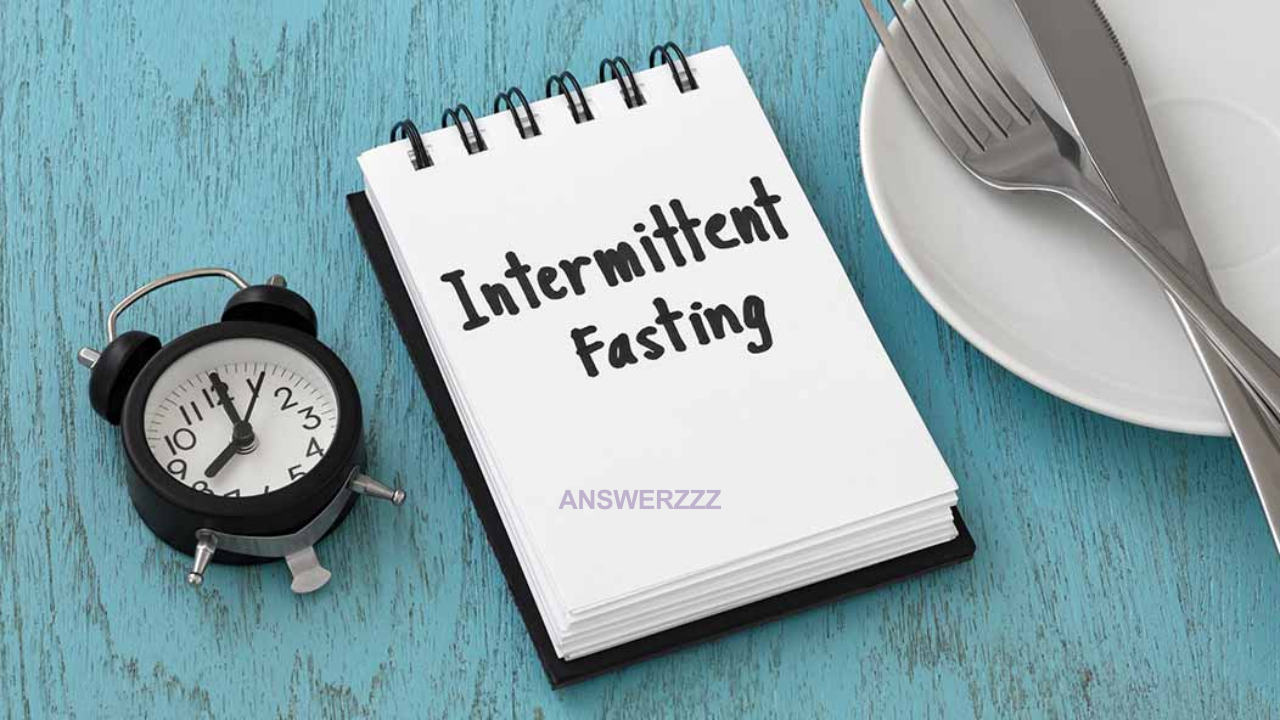Intermittent fasting (IF) has become one of the most popular health and fitness trends worldwide. Celebrities, athletes, and health enthusiasts alike have adopted it to lose weight, improve metabolic health, and even enhance longevity. But as with any health trend, intermittent fasting comes with its share of myths, misunderstandings, and controversies. This comprehensive guide will uncover the truth about intermittent fasting, exploring its benefits, risks, and whether it’s the right choice for you.
What Is Intermittent Fasting?
Intermittent fasting is not a diet but rather an eating pattern. It alternates between periods of eating and fasting, focusing on when you eat rather than what you eat. The concept isn’t new—our ancestors often went long hours or even days without food due to the lack of consistent food supply. Today, intermittent fasting is touted as a way to align with our natural eating patterns while leveraging its potential health benefits.
Popular Intermittent Fasting Methods
- 16/8 Method: This involves fasting for 16 hours and eating during an 8-hour window, such as from 12 PM to 8 PM.
- 5:2 Diet: Eat normally for five days a week and restrict calorie intake to about 500–600 calories on the other two days.
- Eat-Stop-Eat: Involves a full 24-hour fast once or twice a week.
- Alternate-Day Fasting: Fast every other day, either completely or by significantly reducing calorie intake.
- Warrior Diet: Fast for 20 hours and consume all calories during a 4-hour eating window, often in the evening.

How Intermittent Fasting Works
The logic behind intermittent fasting lies in how the body processes food for energy. After you eat, your body breaks down carbohydrates into glucose, which it uses for energy. When you’re not eating, your body eventually depletes its glucose reserves and turns to fat for fuel, entering a state called ketosis. By fasting, you create longer periods when your body burns fat instead of glucose, potentially aiding weight loss and improving metabolic health.
The Benefits of Intermittent Fasting
1. Weight Loss and Fat Burning
One of the most popular reasons for intermittent fasting is weight loss. By limiting the hours in which you eat, intermittent fasting can naturally reduce calorie intake without the need for rigorous counting. During the fasting period, the body uses stored fat for energy, promoting fat loss, especially visceral fat (the harmful fat around internal organs).
2. Improved Metabolic Health
Fasting can improve various markers of metabolic health:
- Insulin Sensitivity: Fasting lowers insulin levels, improving insulin sensitivity and potentially reducing the risk of type 2 diabetes.
- Blood Sugar Control: Studies suggest intermittent fasting helps stabilize blood sugar levels and reduces fasting blood glucose and HbA1c levels.
- Cholesterol Levels: It may decrease LDL (bad cholesterol) and triglycerides, improving overall heart health.
3. Enhanced Brain Function
Intermittent fasting may boost brain health in several ways:
- Reduced Inflammation: Fasting has been shown to decrease inflammation, a contributor to neurodegenerative diseases.
- Increased BDNF: Brain-derived neurotrophic factor (BDNF), a protein critical for learning and memory, increases during fasting.
- Autophagy: Fasting triggers autophagy, a process where the body clears out damaged cells and regenerates new ones, potentially protecting against diseases like Alzheimer’s and Parkinson’s.
4. Longevity and Anti-Aging
Animal studies have shown that intermittent fasting can extend lifespan. By improving cellular repair processes, reducing oxidative stress, and promoting autophagy, fasting may help delay the aging process.
5. Simplified Lifestyle
For those who dislike meal planning or are overwhelmed by constant dieting rules, intermittent fasting offers simplicity. With fewer meals to prepare and eat, it saves time and mental energy.
The Risks and Downsides of Intermittent Fasting
While intermittent fasting has promising benefits, it is not without risks. Understanding these is crucial for making an informed decision about whether this eating pattern suits your lifestyle and health goals.
1. Hunger and Overeating
Fasting periods can leave you feeling extremely hungry, especially in the beginning. This can lead to binge eating during eating windows, potentially negating any calorie deficit you’ve created.
2. Nutrient Deficiency
Focusing solely on fasting without proper attention to food quality can result in nutrient deficiencies. During the eating window, it’s essential to consume nutrient-dense meals rich in vitamins, minerals, and macronutrients.
3. Hormonal Disruptions
- Women: Fasting can disrupt hormonal balance, particularly in women, affecting menstrual cycles and fertility. Prolonged fasting can lower estrogen and progesterone levels.
- Men: While less common, excessive fasting can affect testosterone levels in men.
4. Fatigue and Mood Swings
Fasting can initially cause fatigue, irritability, and mood swings as your body adapts to longer periods without food. This is particularly common if your diet lacks proper hydration and essential nutrients.

5. Risk for Certain Populations
Intermittent fasting is not recommended for everyone. It may be harmful to:
- Pregnant or breastfeeding women
- People with a history of eating disorders
- Individuals with low blood pressure or hypoglycemia
- Those on medications that require food intake
6. Social Limitations
The strict eating windows may make it difficult to participate in social gatherings or meals, potentially affecting your social life and relationships.
Intermittent Fasting vs. Traditional Diets
Unlike traditional calorie-restricted diets, intermittent fasting doesn’t emphasize what you eat, only when you eat. This distinction has both pros and cons:
- Pros: It’s simpler and doesn’t require constant tracking of calories or macronutrients.
- Cons: Focusing on eating windows alone may lead to poor food choices if you neglect nutritional balance.
Who Should Try Intermittent Fasting?
Intermittent fasting is not a one-size-fits-all solution. Here are a few considerations to help determine if it’s right for you:
Ideal Candidates
- People with busy lifestyles who want a simplified eating schedule.
- Those looking to improve metabolic health or lose weight without restrictive diets.
- Individuals who can handle hunger without emotional eating.
Who Should Avoid It?
- Pregnant or breastfeeding women.
- Those with a history of eating disorders or food-related anxieties.
- People with specific medical conditions like diabetes or low blood pressure, unless supervised by a doctor.
Tips for Success with Intermittent Fasting
If you decide to try intermittent fasting, keep these tips in mind to maximize its benefits and minimize risks:
1. Start Gradually
If the idea of fasting for 16 hours sounds daunting, start with a 12-hour fast and gradually increase the duration as your body adjusts.
2. Stay Hydrated
Drink plenty of water throughout the day to stay hydrated and reduce hunger pangs. Herbal teas and black coffee (without added sugar or cream) can also help during fasting periods.
3. Focus on Nutrient-Dense Foods
During your eating window, prioritize whole, unprocessed foods such as lean proteins, healthy fats, complex carbohydrates, fruits, and vegetables. Avoid the temptation to eat junk food or overeat.
4. Manage Stress
Stress can make fasting more challenging, as cortisol (the stress hormone) can trigger hunger. Incorporate stress-management practices like meditation, yoga, or deep breathing.
5. Listen to Your Body
Pay attention to how your body responds to fasting. If you experience extreme fatigue, dizziness, or other concerning symptoms, stop fasting and consult a healthcare professional.

The Science Behind Intermittent Fasting
Intermittent fasting has been the subject of numerous studies, with findings that support many of its purported benefits. However, most studies have been conducted on animals or in short-term human trials. While results are promising, more long-term research is needed to fully understand the impact of intermittent fasting on human health.
Key Takeaways
Intermittent fasting offers a promising approach to weight loss, metabolic health, and even longevity. However, it’s not a magic bullet, and its effectiveness varies from person to person. To make the most of this eating pattern:
- Evaluate whether it fits your lifestyle and health goals.
- Prioritize nutrient-dense foods during eating windows.
- Be aware of potential risks, especially if you belong to a vulnerable population.
Ultimately, intermittent fasting is one of many tools that can support a healthy lifestyle. Combined with balanced nutrition, regular exercise, and good sleep, it can be a sustainable strategy for improving overall well-being.
Is Intermittent Fasting Right for You?
If you’re curious about trying intermittent fasting, consult with a healthcare professional or nutritionist to create a personalized plan tailored to your needs. Remember, the best diet is one you can maintain long-term and one that makes you feel your healthiest.



